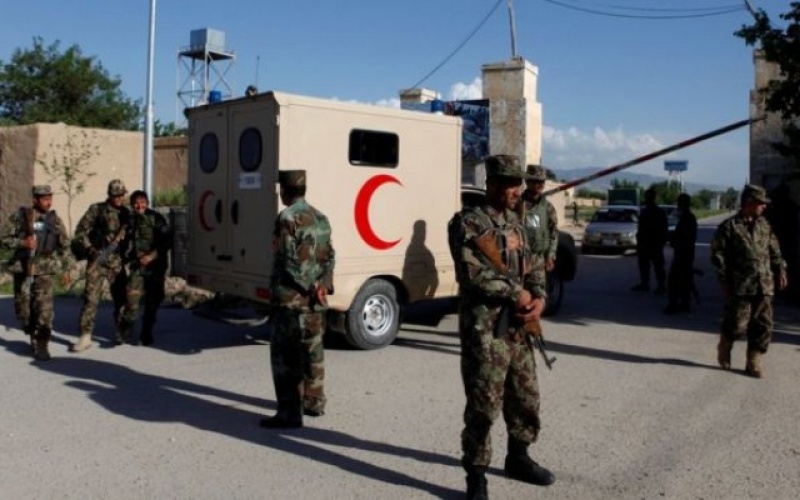
Afghanistan’s defence minister and army chief of staff have resigned in the wake of a Taliban attack that left scores of soldiers dead, the presidential palace says.
The attack happened on Friday at an army base near Mazar-e Sharif.
Insurgents targeted troops leaving Friday prayers at the base’s mosque and in a canteen, the army said.
It was the Taliban’s deadliest attack on the armed forces since it was removed from power in 2001.
The resignations coincided with the arrival of US Defence Secretary Jim Mattis on an unannounced visit to Kabul. He is due to meet both Afghan officials and US troops.
How did the attack unfold?
A group of Taliban insurgents dressed in Afghan military uniforms and driving military vehicles made their way into the base in the northern city and opened fire.
Many of those who died were young recruits training at the base. Witnesses described chaotic scenes as the young soldiers struggled to work out who was friend or foe.
The attackers were armed with guns, grenades and some were wearing suicide vests, reports said. The defence ministry said the attackers were all killed.
It is not clear exactly how many soldiers died. The Afghan defence ministry has not released firm casualty figures, only saying more than 100 people were killed or injured.
Other officials have told BBC that at least 136 people died – 124 coffins had been sent out to different parts of the country and 12 soldiers had not yet been identified, they said.
But some sources say the toll was even higher. One eyewitness told the BBC he counted 165 bodies.
Why have officials stepped down?
The resignations of Defence Minister Abdullah Habibi and army chief Qadam Shah Shaheem were announced in a one-line statement from the presidential palace.
No explanation was given but the attack has caused widespread anger in Afghanistan, with many questioning the government’s ability to counter the Taliban insurgency.
It comes just weeks after the assault on the military hospital in Kabul, which left dozens of people dead.
That attack was blamed on the so-called Islamic State, but many have questioned the official narrative, saying the attackers shouted pro-Taliban slogans.
In both recent attacks, people have questioned the inability of the authorities to prevent them, the lack of clarity regarding death tolls and the possibility of insider involvement.
The recent fall of Sangin in the south – a strategically important centre – has also shaken confidence in the defence establishment.
Source: BBC

































